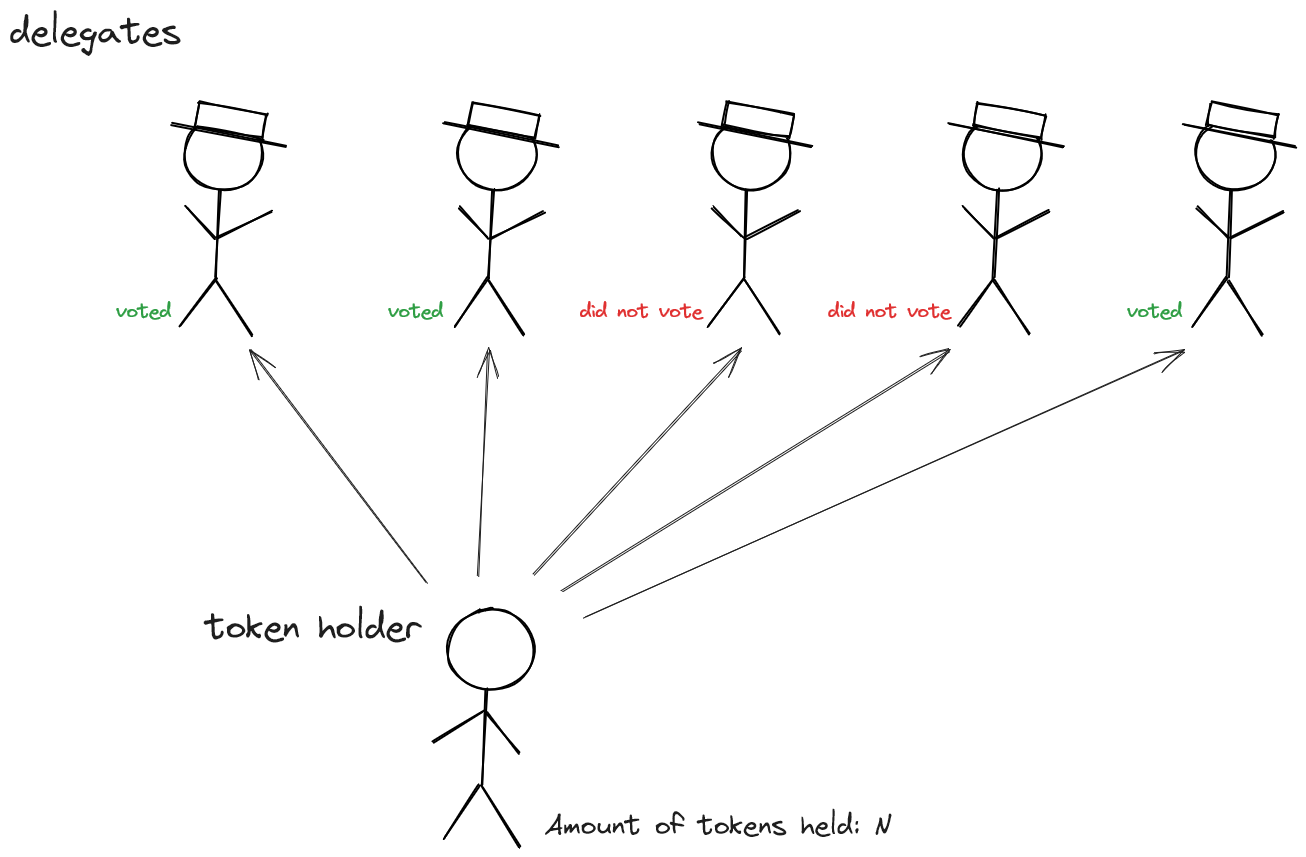Introduction
Projects related to blockchain often attempt to decentralize governance. In the governance of blockchain projects, 'governance tokens' are often introduced to facilitate smooth consensus formation for the maintenance of the protocol. In particular, delegation mechanisms are introduced to secure the governance system. However, if the person to whom authority is delegated becomes unable to participate in governance, securing the governance system becomes challenging. In this article, I propose MultiDelegate as a mitigation measure.
Voting and Delegation
Voting with governance tokens that lack a delegation mechanism takes place as follows:
-
Token holders gain voting power proportional to the number of tokens they hold at a specific snapshot in time.
-
Token holders vote within a designated period and receive the results afterward.
However, this has a significant drawback: those who own a large number of tokens can easily sway the voting results, thereby reducing the incentive for those with fewer tokens to vote. A decrease in voter participation leads to a lower proportion of tokens being used for voting. This reduction makes it easier for attackers to influence voting results, and it challenges the legitimacy of the vote.
The mechanism to mitigate this issue is delegation. In other words, token holders delegate their voting power to trusted community members. Those who only hold a small amount of tokens don't need to read through proposals and vote; they delegate to "knowledgeable people they trust" who will exercise their voting power on their behalf.
Issues with Delegation
Delegation is an excellent solution to the problem of low participation rates in voting. However, if a person who has been delegated a large number of tokens becomes unable to participate in governance, the same problem re-emerges.
To provide a concrete example, I have been delegated tokens by multiple individuals in a certain DeFi protocol. The tokens delegated to me represent about 30% of the voting power in recently passed proposals. If I were to suddenly die or lose interest in governance, that 30% voting power would go unexercised. This is counterproductive when considering the original purpose of introducing a delegation system into governance.
Of course, this problem could be solved by frequently checking the voting status and re-delegating to someone else if the original delegate fails to vote. However, will those who only hold a small amount of tokens bother to do such a "troublesome thing"?
Proposal for MultiDelegate
Overview
Here, I propose MultiDelegate. MultiDelegate is a system where a token holder delegates to "multiple" trusted community members. If a token holder owns X tokens and has delegated to Y members, the voting power is distributed as X/Y. Moreover, the system introduces the following mechanism:
If, among the members delegated to, Z members do not vote on a certain proposal, the voting power becomes X/(Y-Z). In other words, as long as at least one of the delegated members votes on a proposal, all of the tokens held by that token holder will be used for voting. This distribution of voting power takes place for each proposal.

Issues
MultiDelegate has the following issues:
-
The voting power of each individual is only determined after the voting period has ended.
-
The mechanism is complex.
Conclusion
Governance in blockchain is based on the spirit of decentralization. However, to address the issues highlighted by existing delegation systems, I propose MultiDelegate.